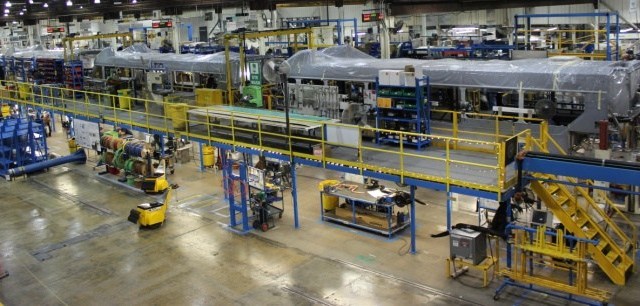
New Flyer and Communications Workers of America authorize strike
by CM Staff
97.2 per cent of workers in Minnesota voted “yes” to strike following Winnipeg bus manufacturing company’s latest offer.

PHOTO: New Flyer
ST. CLOUD — New Flyer workers and members of the Communications Workers of America (CWA) in St. Cloud, Minn. yesterday voted 415 to 12 to authorize a strike, should it be necessary.
The New Flyer’s Union have put out a statement saying that the bus manufacturing company has not progressed quickly enough towards negotiating a contract that meets their expectations for wages. Workers had previously stated they wanted wages to account for inflation, paid sick leave and paid time off for religious holidays.
Additionally, the union stated that the company has not addressed their concerns regarding overtime. They have yet to set a date for the strike.
The 492 Minnesota-based New Flyer workers manufacture and supply electric, diesel, hybrid and compressed natural gas public transit buses for cities across the country, including New York, N.Y.; Las Vegas, Nev.; Philadelphia, Pa.; Columbus, OH as well as for New Jersey Transit.
The company is based in Winnipeg, Canada and has a majority of the market share of heavy-duty transit buses in the U.S.
“We are doing everything we can to avoid a strike and get New Flyer to negotiate a fair contract so we can do our jobs and build green buses for our country’s major cities,” said Michael Krugman, senior electrical technician in a statement.
“It is frustrating and ironic that the delay in bargaining is all about time–time with our families, times with our friends. New Flyer may be better managed in Canada, but here the company can’t seem to function without forcing us to work excessive overtime. A big part of the problem is that wages are too low to recruit or retain employees. Of course that makes it worse for remaining employees who are then forced to work even more overtime. It’s a vicious cycle that needs to be broken.”